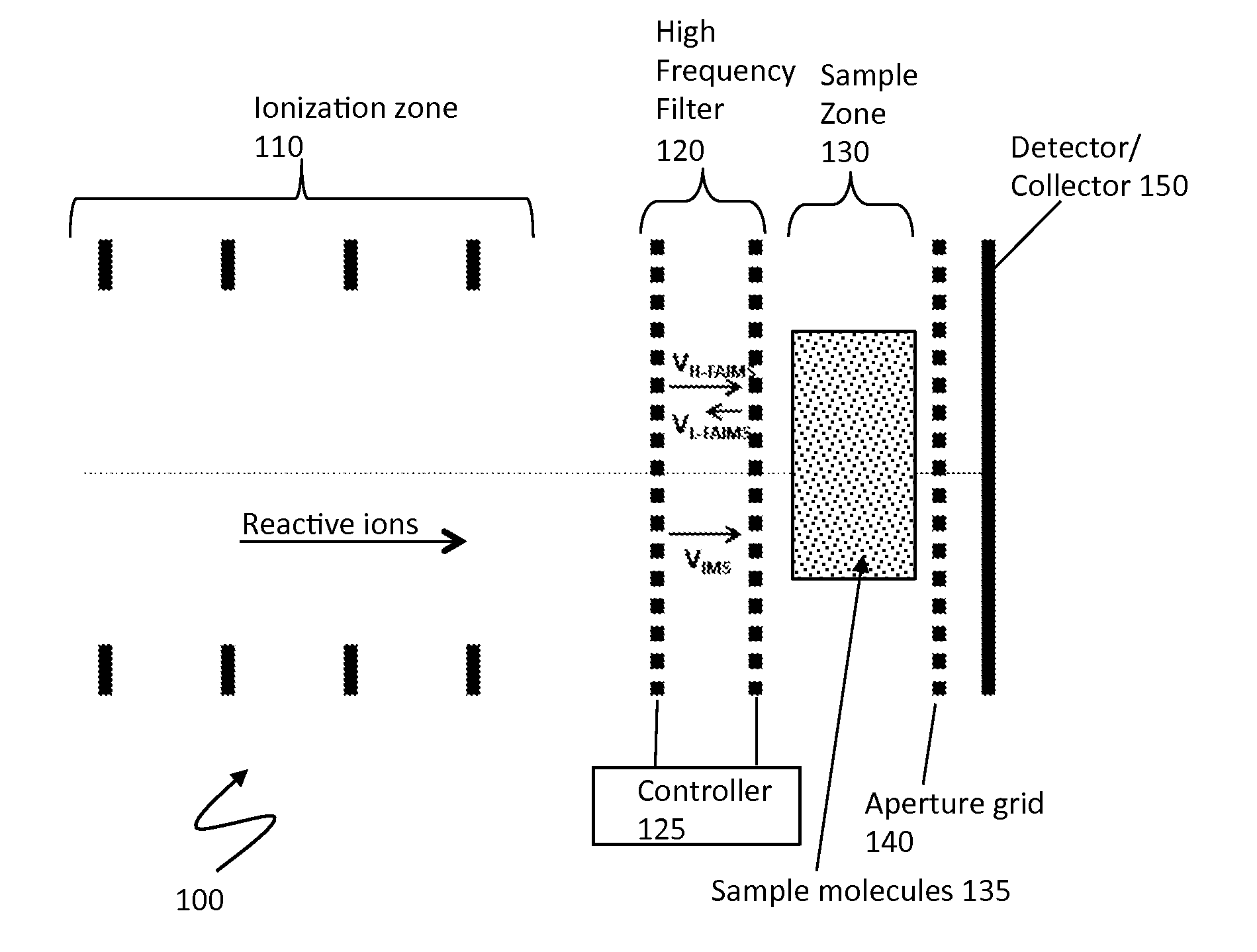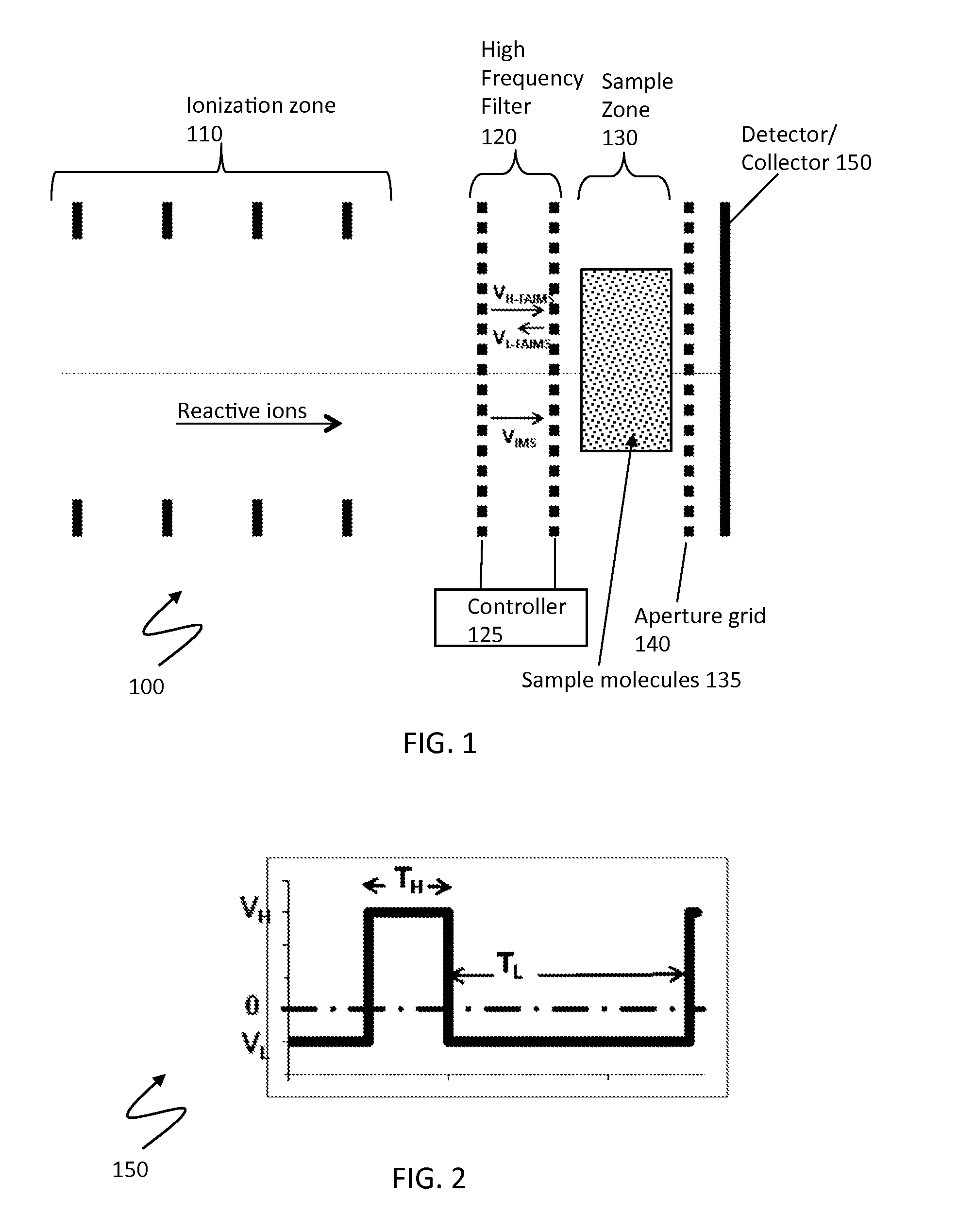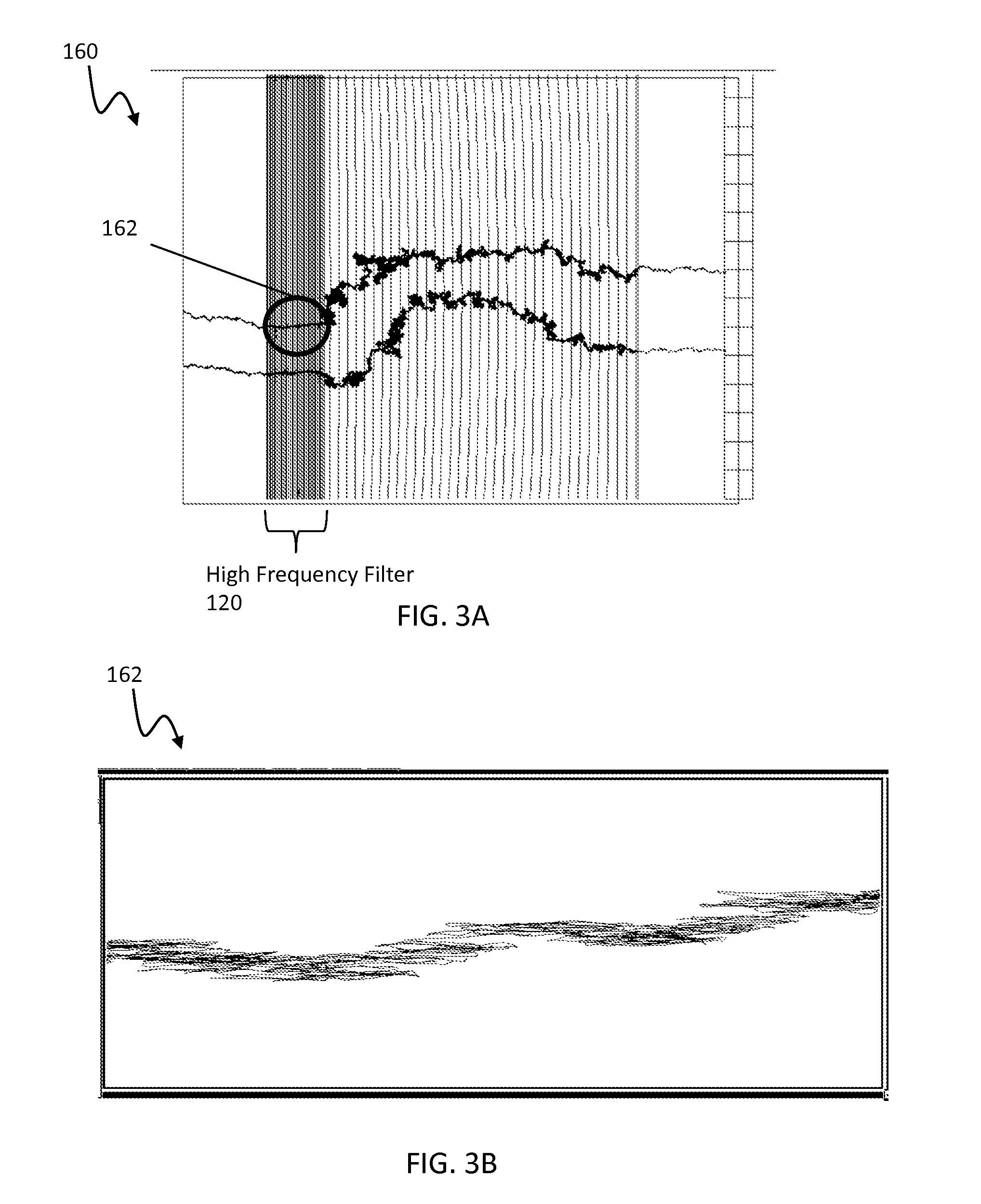Selective ionization using high frequency filtering of reactive ions
a reactive ion and high-frequency filtering technology, applied in the field of chemical analysis, can solve the problems of instrument contamination and confusion, difficult to avoid contamination by explosive particles, and extremely low vapor pressur
- Summary
- Abstract
- Description
- Claims
- Application Information
AI Technical Summary
Benefits of technology
Problems solved by technology
Method used
Image
Examples
Embodiment Construction
[0023]The system described herein provides for use of combined techniques, such as low and high field mobility techniques, to offer several advantages including low cost, no vacuum required, and the generation of 2-D spectra for enhanced detection and identification. Operation of the analytical devices may provide a system with advantageous flexibility by allowing adaptation of the hyphenated instrument to the application's requirements. With the IMS-FAIMS hardware level flexibility, the instruments may be configured and optimized to exploit different trade-offs suitable for a variety of detection scenarios for different lists of target compounds.
[0024]In an embodiment, the system described herein may be used in connection with tandem instruments using a variable frequency pulsed ionization source and two separation techniques, such as low and high field mobility. It is noted that, in various embodiments, the IMS and FAIMS devices may be orthogonal to each other, specifically in whi...
PUM
 Login to View More
Login to View More Abstract
Description
Claims
Application Information
 Login to View More
Login to View More - R&D
- Intellectual Property
- Life Sciences
- Materials
- Tech Scout
- Unparalleled Data Quality
- Higher Quality Content
- 60% Fewer Hallucinations
Browse by: Latest US Patents, China's latest patents, Technical Efficacy Thesaurus, Application Domain, Technology Topic, Popular Technical Reports.
© 2025 PatSnap. All rights reserved.Legal|Privacy policy|Modern Slavery Act Transparency Statement|Sitemap|About US| Contact US: help@patsnap.com



